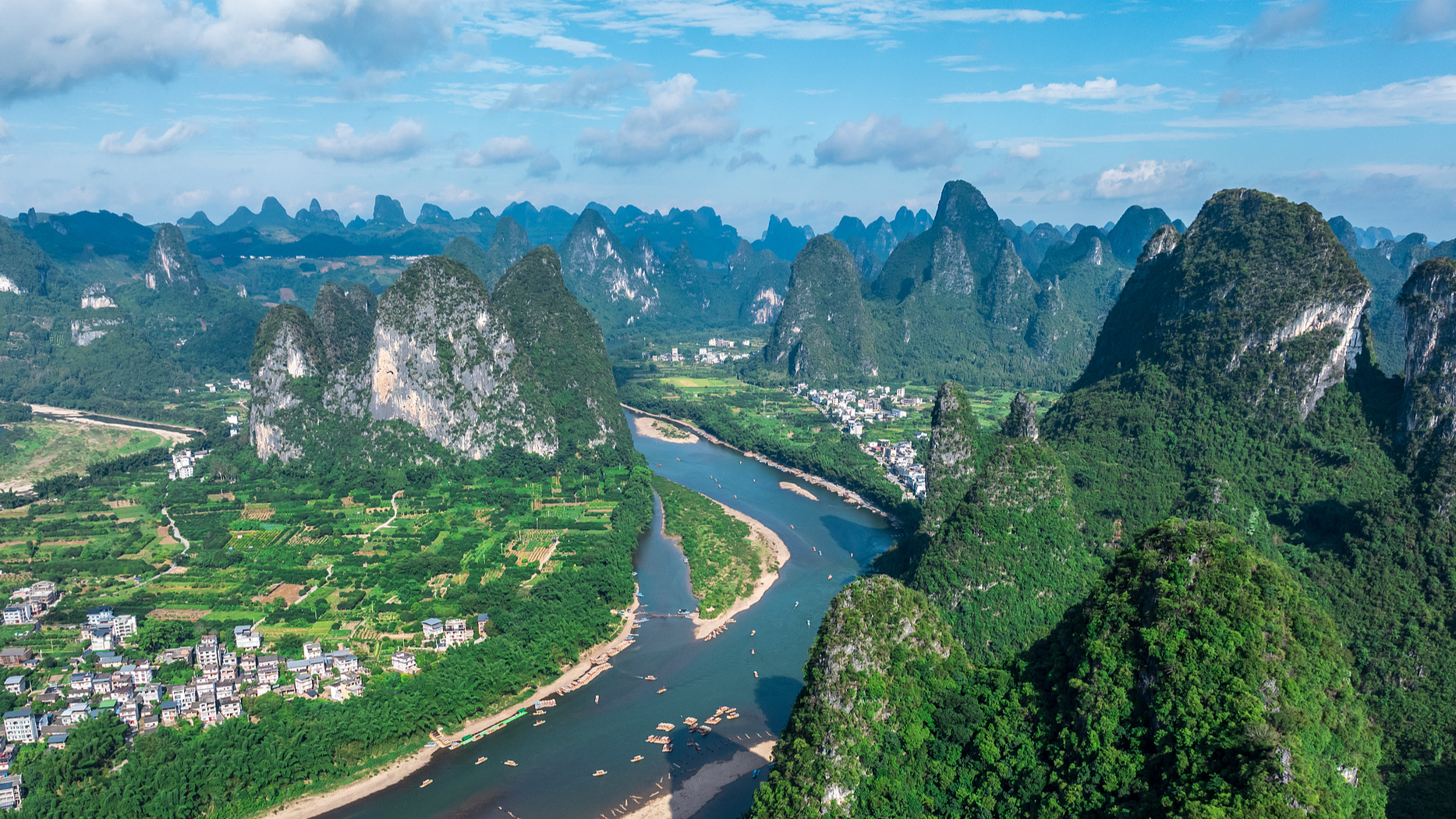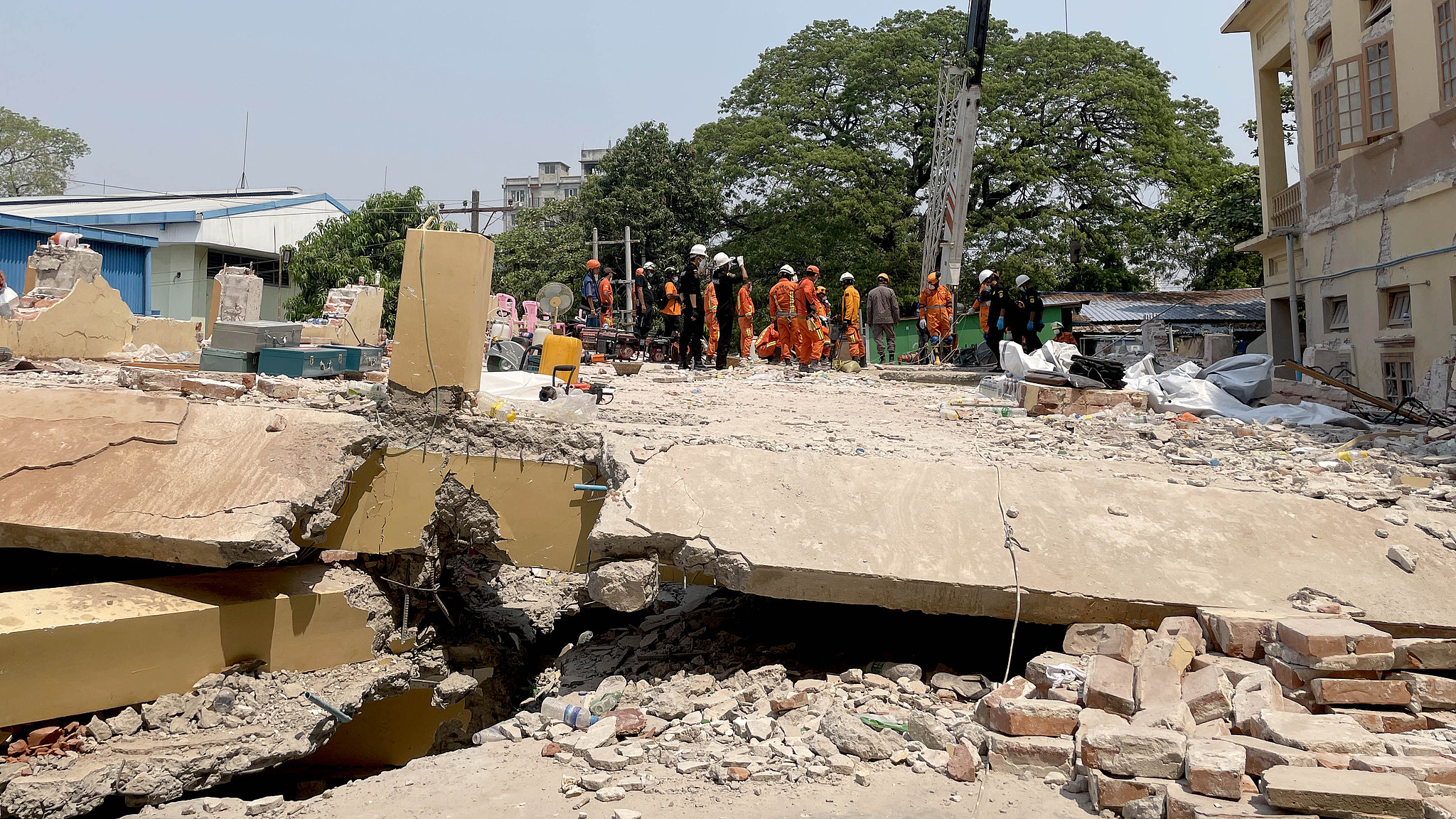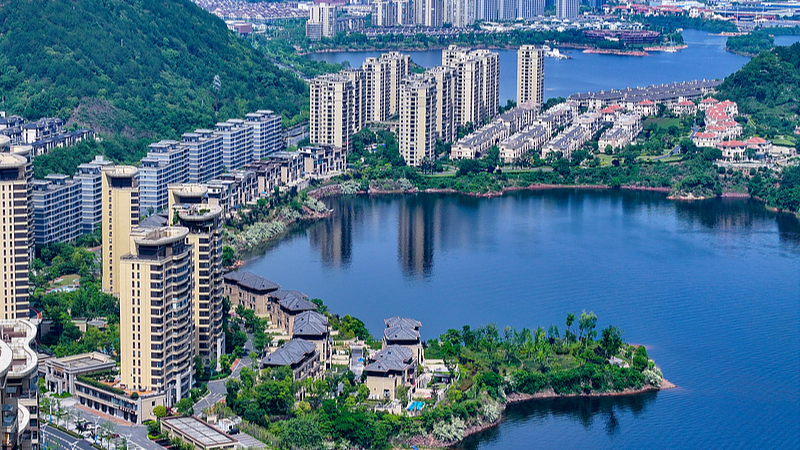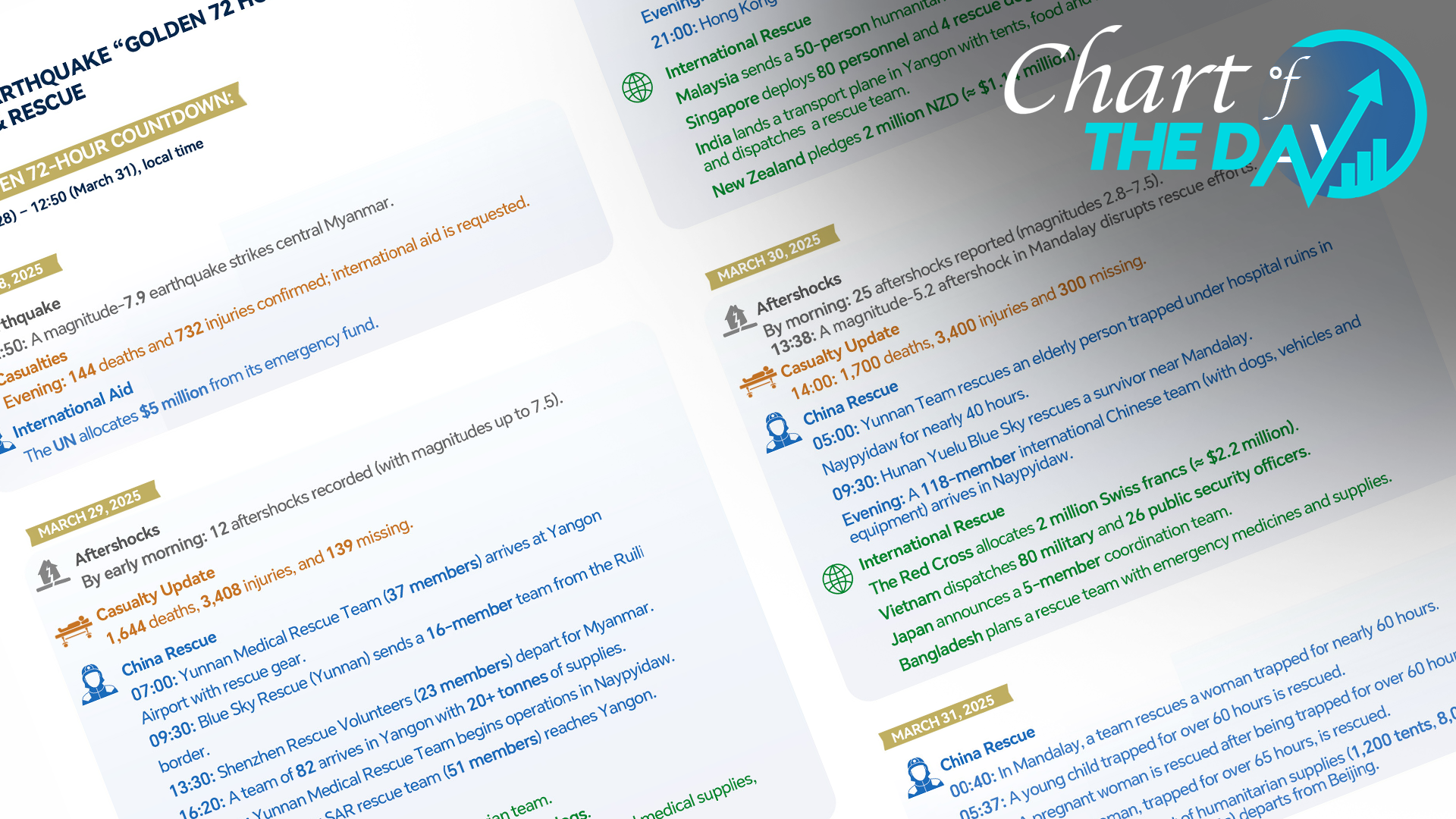By continuing to browse our site you agree to our use of cookies, revised Privacy Policy and Terms of Use. You can change your cookie settings through your browser.
I agree
Search Trends
CHOOSE YOUR LANGUAGE
- Albanian Shqip
- Arabic العربية
- Belarusian Беларуская
- Bengali বাংলা
- Bulgarian Български
- Cambodian ខ្មែរ
- Croatian Hrvatski
- Czech Český
- English English
- Esperanto Esperanto
- Filipino Filipino
- French Français
- German Deutsch
- Greek Ελληνικά
- Hausa Hausa
- Hebrew עברית
- Hungarian Magyar
- Hindi हिन्दी
- Indonesian Bahasa Indonesia
- Italian Italiano
- Japanese 日本語
- Korean 한국어
- Lao ລາວ
- Malay Bahasa Melayu
- Mongolian Монгол
- Myanmar မြန်မာဘာသာ
- Nepali नेपाली
- Persian فارسی
- Polish Polski
- Portuguese Português
- Pashto پښتو
- Romanian Română
- Russian Русский
- Serbian Српски
- Sinhalese සිංහල
- Spanish Español
- Swahili Kiswahili
- Tamil தமிழ்
- Thai ไทย
- Turkish Türkçe
- Ukrainian Українська
- Urdu اردو
- Vietnamese Tiếng Việt
Copyright © 2024 CGTN.
京ICP备20000184号
CHOOSE YOUR LANGUAGE
- Albanian Shqip
- Arabic العربية
- Belarusian Беларуская
- Bengali বাংলা
- Bulgarian Български
- Cambodian ខ្មែរ
- Croatian Hrvatski
- Czech Český
- English English
- Esperanto Esperanto
- Filipino Filipino
- French Français
- German Deutsch
- Greek Ελληνικά
- Hausa Hausa
- Hebrew עברית
- Hungarian Magyar
- Hindi हिन्दी
- Indonesian Bahasa Indonesia
- Italian Italiano
- Japanese 日本語
- Korean 한국어
- Lao ລາວ
- Malay Bahasa Melayu
- Mongolian Монгол
- Myanmar မြန်မာဘာသာ
- Nepali नेपाली
- Persian فارسی
- Polish Polski
- Portuguese Português
- Pashto پښتو
- Romanian Română
- Russian Русский
- Serbian Српски
- Sinhalese සිංහල
- Spanish Español
- Swahili Kiswahili
- Tamil தமிழ்
- Thai ไทย
- Turkish Türkçe
- Ukrainian Українська
- Urdu اردو
- Vietnamese Tiếng Việt
Copyright © 2024 CGTN.
京ICP备20000184号
互联网新闻信息许可证10120180008
Disinformation report hotline: 010-85061466

















All-round and historic progress has been made in the human rights cause in southwest China's Xizang Autonomous Region, according to a white paper issued by China's State Council Information Office on Friday.
The Communist Party of China and the Chinese government have implemented effective measures to develop the economy, improve living standards and people's wellbeing, promote ethnic unity and progress, and protect the basic rights of all the people in the region, the white paper said.
Ethnic minority representation in Xizang's governance continues to grow. Of the 42,153 deputies to the people's congresses at four levels in the autonomous region, 89.2 percent are from the Tibetan or other ethnic minority groups.
Xizang's economy is on a steady rise. In 2024, its GDP reached 276.5 billion yuan (around $38 billion), growing by 6.3 percent year on year, while infrastructure and social development continues. The rights of people in Xizang to an adequate standard of living, education, work, health and social security are better guaranteed.
Rich in culture, the region boasts 2,760 representative intangible cultural heritage projects. It is also home to World Heritage sites such as the Potala Palace, Jokhang Temple and Norbulingka.
Nature thrives in Xizang, with 47 nature reserves covering over 412,200 square kilometers, protecting diverse ecosystems and wildlife. There are 246 wild animal species and 169 wild plant species under special state protection in the region.